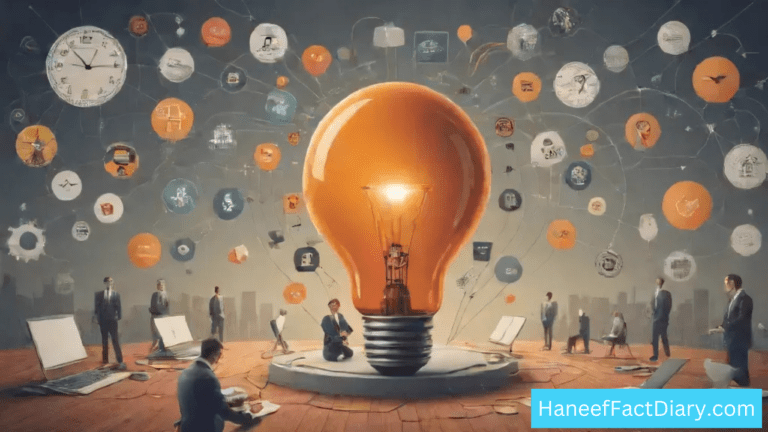Enhance Your Strategy with Decision-Making Skills
In today’s complex and dynamic environment, mastering decision-making skills is key to achieving success. Developing strategic thinking and decision-making skills can help us navigate life’s challenges with confidence and unlock our true potential.
Strategic thinking is a cognitive process that involves identifying opportunities and challenges, evaluating information, generating innovative ideas, and making informed choices. It requires a combination of analytical, creative, and practical skills, as well as a long-term perspective.
Decision-making, on the other hand, is the process of selecting among different alternatives based on a set of criteria and preferences. It involves assessing risks and benefits, anticipating consequences, and choosing the most appropriate option.
In this section, we will explore the importance of developing strategic thinking and decision-making skills and provide tips for enhancing these abilities.
Key Takeaways
- Developing strategic thinking and decision-making skills is essential for personal and professional growth
- Strategic thinking involves identifying opportunities and challenges, evaluating information, generating innovative ideas, and making informed choices
- Decision-making is the process of selecting among different alternatives based on a set of criteria and preferences
- Effective decision-making requires assessing risks and benefits, anticipating consequences, and choosing the best option
- By developing our strategic and decision-making abilities, we can approach challenges with confidence and unlock our full potential
The Power of Self-awareness and Continuous Learning
At the heart of developing strategic thinking and decision-making skills is a commitment to self-awareness and continuous learning. By taking the time to understand our strengths, weaknesses, and values, we can better align our decisions with our goals and stay true to our vision.
Continuous learning is equally important, as it allows us to stay up to date with evolving trends, expand our knowledge base, and gain new insights into emerging challenges. Whether through reading, taking courses, or seeking out feedback from trusted colleagues, ongoing learning enables us to develop a more nuanced and informed perspective that can inform our strategies and decisions.
Together, self-awareness and continuous learning form the foundation of a strategic mindset that values openness, flexibility, and adaptability. By embracing these qualities, we can approach challenges with confidence and make decisions that reflect our highest aspirations.
Read more of this: Self-Awareness and Continuous Learning – Unleash Growth
Cultivating a Growth Mindset and Resilience
In today’s fast-paced world, developing a growth mindset and resilience is crucial for effective strategic thinking and decision-making. A growth mindset values learning, growth, and the ability to persevere in the face of obstacles.
When faced with challenges, we must embrace them and view them as opportunities to learn and grow. By doing so, we can develop new skills and perspectives that enable us to approach future challenges with confidence.
Resilience is also a key factor in developing a growth mindset. It is the ability to bounce back from setbacks and persevere in the face of adversity. When faced with failure, we must learn from our mistakes and use them as stepping stones to success. By maintaining a positive attitude and staying determined, we can overcome any obstacle.
Cultivating a growth mindset and resilience requires a deliberate effort to focus on personal development and progress. We must take time to reflect on our experiences, seek feedback from others, and consistently seek opportunities to learn and grow.
Read More of this : Growth Mindset Cultivating and Resilience Strategies
The Benefits of a Growth Mindset and Resilience
Developing a growth mindset and building resilience can have significant benefits in our personal and professional lives. By viewing challenges as opportunities, we can approach them with a positive attitude and a willingness to learn. This mindset can lead to improved performance, increased creativity, and better problem-solving skills.
Additionally, resilience allows us to bounce back from setbacks and adapt to changing circumstances. By developing this skill, we can handle stress more effectively and maintain a sense of balance and calm in our lives.
Strategies for Cultivating a Growth Mindset and Resilience
| Strategy | Description |
|---|---|
| Embrace Challenges | View challenges as opportunities to learn and grow. By doing so, you can develop new skills and perspectives that enable you to approach future challenges with confidence. |
| Learn from Failure | When faced with failure, take time to reflect on what you can learn from the experience. Use your mistakes as stepping stones to success. |
| Bounce Back from Setbacks | Develop resilience by bouncing back from setbacks and adapting to changing circumstances. This skill allows you to handle stress more effectively and maintain a sense of balance and calm in your life. |
| Seek Feedback | Seek feedback from others to gain new insights and perspectives. This can help you identify areas for improvement and develop new skills. |
| Take Risks | Take calculated risks to challenge yourself and step outside of your comfort zone. This can help you to develop new skills and perspectives, and lead to personal and professional growth. |
By applying these strategies, we can cultivate a growth mindset and resilience, and develop the skills necessary for effective strategic thinking and decision-making.
Embracing Innovation and Adaptability
Today’s fast-paced world demands a new type of thinking. To excel, we must embrace innovation and adaptability. An entrepreneur’s mindset is key, as it fosters the willingness to explore new ideas, adapt to changes, and seize opportunities for growth and improvement.
“Innovation distinguishes between a leader and a follower.”
Steve Jobs
An entrepreneur’s mindset allows us to see challenges as opportunities to create and innovate. We recognize that there is always room for improvement and embrace change as a necessary part of growth. This mindset enables us to look beyond what is familiar and comfortable, allowing for the birth of fresh ideas and new approaches.
By embracing innovation, we remain ahead of our competitors, distinguishing ourselves as leaders in our fields. We seek to push boundaries, challenge norms, and unlock the full potential of our businesses, ideas, and skills. With adaptability, we become comfortable with ambiguity and uncertainty, leveraging change to our advantage and finding new ways to thrive.
Read more of this: Embracing Innovation and Adaptability for Growth
Building Grit and Overcoming Challenges
At some point in life, we all face obstacles and challenges that test our resolve. Building grit involves developing the resilience, perseverance, and determination necessary to overcome these challenges and persist in pursuing our goals.
When it comes to strategic decision-making and problem-solving, grit plays a fundamental role in enabling us to approach challenges with confidence and see them through to the end. By developing grit, we cultivate a long-term focus that allows us to prioritize our goals and persist in the face of setbacks and obstacles.
An important aspect of building grit is embracing the learning opportunities that come with every challenge. Instead of viewing setbacks as failures, we can learn from them and use them as stepping stones to success. This mindset involves embracing challenges and seeking opportunities for growth and improvement, even when the going gets tough.
In addition to a growth mindset, building grit also involves developing resilience. This means bouncing back from setbacks and developing the strength to handle adversity. By building resilience, we become better equipped to handle the challenges that inevitably arise in life and can approach them with a positive attitude and a determination to succeed.
In summary, building grit is essential for achieving our goals and making strategic decisions. By developing resilience, determination, and a long-term focus, we can overcome challenges and persist in pursuing our objectives, even in the face of adversity.
Read more of this: Building Grit & Overcoming Challenges Guide
Developing Critical Thinking and Problem-Solving Skills
Developing critical thinking and problem-solving skills is essential for effective decision-making. By enhancing our ability to analyze situations, evaluate information, and generate innovative solutions, we can make more strategic decisions and tackle complex problems with confidence.
When facing a challenge, critical thinking enables us to break down complex issues into simpler parts, analyze each part separately, and then identify patterns. We then evaluate information to determine the quality and relevance and generate multiple viewpoints or alternative solutions before making a decision.
Problem-solving skills come into play once we’ve identified a problem. We can then use a combination of creativity, logic, and analysis to devise an action plan to solve the problem. By doing so, we can make informed decisions quickly and proceed with confidence.
There are various ways to develop these skills, from actively seeking new information and perspectives to practicing analyzing complex issues. Additionally, engaging in critical thinking exercises and problem-solving activities can help sharpen our abilities and build our confidence in decision-making.
Read more about this: Entrepreneur’s Mindset: Key to Success Unlocking
The Importance of Analytical Thinking in Decision-Making
One of the most critical aspects of strategic decision-making is analytical thinking. Being able to gather, interpret, and analyze data is essential for making informed and effective decisions.
With analytical thinking, we can break down complex problems into smaller, more manageable components and identify patterns and relationships between different pieces of information. This allows us to evaluate the potential outcomes of different choices and make decisions that align with our goals and values.
Developing our analytical thinking skills involves a combination of practice and training. We can start by paying attention to details, considering different perspectives, and questioning assumptions and biases. We can also seek out opportunities to learn from data and feedback, and regularly evaluate our decision-making process to identify areas for improvement.
By enhancing our analytical thinking abilities, we can build a strong foundation for strategic decision-making and navigate complex challenges with confidence.
Strategies for Effective Decision-Making
Enhancing our decision-making process can be challenging, but many strategies and techniques can help us make more strategic and well-informed decisions. Some of these techniques are:
Understanding Decision-Making Models
There are several decision-making models, such as the rational decision-making model, behavioral decision-making model, and intuitive decision-making model. Understanding each of these models helps us identify the best approach for a particular decision.
Considering Multiple Perspectives
Considering multiple perspectives, such as those of stakeholders, colleagues, and experts, helps us make better-informed decisions and avoid bias.
Weighing Pros and Cons of Different Options
Weighing the pros and cons of different options helps us evaluate each choice’s advantages and disadvantages, enabling us to make decisions that align with our goals and values.
Using Creative Problem-Solving Techniques
Using creative problem-solving techniques, such as brainstorming, mind mapping, and lateral thinking, can help us generate innovative solutions to complex problems and identify new opportunities.
By employing these strategies and techniques, we can develop a more systematic and effective decision-making process, leading to better outcomes and enhanced strategic thinking abilities.
Enhancing Strategic Thinking Abilities
In today’s fast-paced environment, improving strategic thinking abilities is crucial for making informed decisions that lead to success. Here are some exercises and approaches that can help enhance your strategic thinking skills:
- Developing a long-term mindset: Instead of focusing only on short-term goals, try to consider the long-term implications of your decisions. You can do this by asking questions such as “What will happen in the next 5 or 10 years if I make this choice?”
- Practicing scenario analysis: Imagining different scenarios and evaluating the outcomes can help you anticipate potential risks and opportunities. This can also help you make contingency plans and avoid potential pitfalls.
- Considering multiple perspectives: When making decisions, it’s important to consider different viewpoints, including those that may be in opposition to your own. This can help you see the bigger picture and make more well-rounded choices.
- Seeking feedback: Feedback from colleagues, mentors, or friends can help you identify blind spots and improve your decision-making process. Be open to constructive criticism and be willing to learn from mistakes.
- Exploring new ideas: Embrace innovation and challenge yourself to think creatively. This can help you stay ahead of the competition and identify new growth opportunities.
By incorporating these exercises and approaches into your daily routine, you can improve your strategic thinking abilities, make more informed decisions, and achieve greater success in all areas of your life.
The Role of Cognitive Skills in Strategic Decision-Making
Developing cognitive skills, such as attention, memory, and problem-solving, is crucial for making strategic decisions. These skills enable us to analyze complex situations, weigh the pros and cons of different options, and identify potential risks and opportunities.
Attention is an essential cognitive skill that helps us focus on relevant information and avoid distractions. By improving our attention skills, we can stay present and engaged in the decision-making process, leading to more effective outcomes.
Memory is another crucial cognitive skill that allows us to recall past experiences and use them to inform our decisions. By enhancing our memory skills, we can retain important information and use it to make informed choices.
Problem-solving is a vital cognitive skill that enables us to analyze complex problems, generate creative solutions, and identify new opportunities. By developing our problem-solving skills, we can tackle challenges with confidence and find innovative ways to achieve our goals.
In conclusion, developing cognitive skills is essential for effective strategic decision-making. By training and practicing these skills, we can enhance our ability to think critically, weigh different options, and make informed decisions that lead to success.
Conclusion
Developing decision-making abilities and a strategic mindset is crucial for personal and professional growth. By embracing the power of self-awareness and continuous learning, cultivating a growth mindset and resilience, embracing innovation and adaptability, building grit and overcoming challenges, developing critical thinking and problem-solving skills, and enhancing cognitive skills, we can approach situations with a strategic mindset and make informed decisions that lead to success.
Remember that developing these skills takes time and practice. It requires a willingness to learn from experiences and mistakes, adopt new perspectives, and embrace change. But with persistence and dedication, we can unlock our full potential and approach challenges with confidence.
Let us commit to honing our decision-making abilities and cultivating a strategic mindset, not only for ourselves but also for the people we work with and the communities we serve. Together, we can create a better world built on intentional and strategic decision-making.
FAQ
Why are strategic thinking and decision-making skills important?
Developing strategic thinking and decision-making skills is crucial for navigating the complexities of life and achieving success in various areas. These skills help us approach challenges with confidence and make informed choices that align with our goals.
How can self-awareness and continuous learning improve strategic thinking?
Self-awareness and continuous learning play vital roles in developing strategic thinking. By understanding ourselves better and consistently seeking knowledge and feedback, we can improve our ability to make well-informed decisions and adapt to changing circumstances.
Why is cultivating a growth mindset and resilience important for strategic thinking?
Cultivating a growth mindset and building resilience is essential for effective strategic thinking. Embracing challenges, learning from setbacks, and maintaining a positive attitude foster a mindset that values learning, growth, and the ability to persevere in the face of obstacles.
How does embracing innovation and adaptability enhance strategic thinking?
Embracing innovation and adaptability is crucial for strategic thinking and decision-making. By adopting an entrepreneur’s mindset, we cultivate a willingness to explore new ideas, adapt to changes, and seize opportunities for growth and improvement.
Why is building grit important for strategic decision-making?
Building grit, which combines passion and perseverance, is essential for strategic decision-making. Developing resilience, determination, and a long-term focus enables us to overcome challenges and persist in pursuing our goals.
How do critical thinking and problem-solving skills contribute to effective decision-making?
Critical thinking and problem-solving skills are fundamental for effective decision-making. By enhancing our ability to analyze situations, evaluate information, and generate innovative solutions, we can make more strategic decisions and tackle complex problems with confidence.
What role does analytical thinking play in decision-making?
Analytical thinking is significant in decision-making. By developing our analytical skills, we can gather and interpret data, identify patterns, and assess the potential outcomes of different choices. This enables us to make more informed and strategic decisions.
What are some strategies for effective decision-making?
Various strategies and techniques can enhance the decision-making process. These include understanding decision-making models, considering multiple perspectives, and weighing the pros and cons of different options to make more strategic and well-informed decisions.
How can we enhance our strategic thinking abilities?
Some specific exercises and approaches can help improve our strategic thinking abilities. By practicing strategic thinking, evaluating scenarios, and considering long-term implications, we can develop a more strategic mindset and approach to decision-making.
What is the role of cognitive skills in strategic decision-making?
Cognitive skills, such as attention, memory, and problem-solving, are crucial for strategic decision-making. Developing these skills through training and practice enhances our ability to think critically and make effective strategic decisions.
Why is it important to develop decision-making abilities and a strategic mindset?
Developing decision-making abilities and a strategic mindset is essential for personal and professional growth. By cultivating self-awareness, embracing innovation, and building resilience, we can approach challenges with confidence and make strategic decisions that lead to success. Continuous learning and the right cognitive skills allow us to navigate life’s complexities and thrive in various situations.







